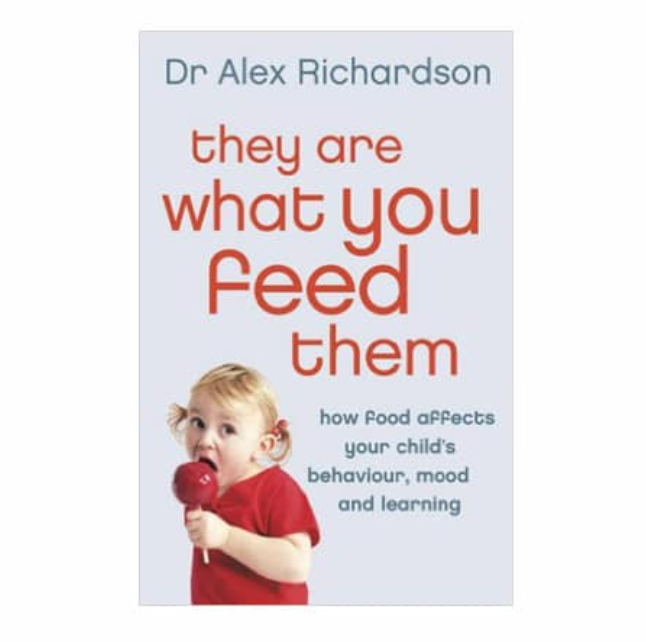Food And Behaviour Research
FAB Research is a charitable organisation committed to improving current knowledge and awareness of the effects of nutrition and diet on human behaviour, learning and mood. They feature articles about their research and other studies on the role of nutrition in ADHD, Autism, Dyslexia and other related mental health conditions.
“ We’re bombarded with nutritional information. But beyond some general rules, most people haven’t been taught what all the information means. And even the general rules can be very misleading, based on decades of seemingly wilful misunderstanding on the part of the food industry”
Resources for Parents & Carers
Nutrition & childhood mental health
Not even doctors are routinely taught about nutrition. So what chance does the average person have of understanding what it all means?
One of the aims of the FAB website is to present the latest news and resources to an audience who might not otherwise stumble upon this material.
They are what you feed them
Director of FAB Research and Senior Research Fellow at Oxford University Dr Alex Richardson is the UK’s leading expert on how childhood nutrition impacts brain function, including disorders such as ADHD and dyslexia.
This book is a parent’s guide to navigating the science, from understanding the research to taking steps at home.
It’s also possible to get a free consultation with Dr Richardson when you sign up to FAB Research.
David Rex RD
An Evidence-based, “Common Sense” Approach to the Evaluation of Dietary Interventions in ASD and ADHD:
Extract:
Promotion of a “balanced diet” based on the 5 food groups as shown in the “Eatwell Plate”
Eating regularly and not skipping breakfast
Eating at least 5 potions of fruit and vegetables a day (for folate, magnesium, antioxidants in general and fibre)
Reduction in soft drinks /confectionery containing specific artificial food colours / benzoate preservatives (added benefit of reducing empty calories)
Consideration and possibly testing of vitamin D status with oral supplements for northerly latitudes, dark skin or indoor lifestyle
Eating oil rich fish or taking omega 3 supplements
For those with an inadequate diet, the use of a multi-purpose vitamin and mineral supplement where no ingredients exceed the reference nutrient intake
Measurement of Ferritin stores and prescription of Iron supplements depending on results
Ensuring the inclusion of Iron and Zinc rich foods or using supplements
Consideration of food intolerances to a range of foods through trial and error but only under the supervision of a State Registered Dietitian
“ It is clear that children with an ASD or ADHD diagnosis are often more vulnerable to difficulties in mood, behaviour, learning and sleep ”
David Rex, RD
Specialist Dietitican, NHS Highlands, BDA advisory
Research Articles.
ADHD & Omega-3
Omega-3 fish oil as effective as drugs for some children with ADHD
Omega-3 supplementation - ideally through increased fish consumption - has positive impact on behaviour of children with ADHD, says new study.
Immune System & neuropsychiatric symptoms
Increasingly studies show psychiatric conditions accompanied by immune system dysregulation and inflammation
“ Exposure to childhood adversity has been linked to the development of inflammatory conditions later in life. Stress at a young age is associated with gut inflammation that can lead to problematic mental and physical conditions. The mechanism seems to be that stresshormones affect the organisms living in the gut and their balance with each other. Gut imbalance can lead to damage in the lining of the gut. This triggers a reaction of the immune system: inflammation. ”
Fast food impacts teen Sleep
Poor quality sleep adversely impacts on adolescent wellbeing
“ Our findings suggest strong positive associations between carbonated soft drink and fast food intake with stress-related sleep disturbance. ”
Data sourced from 64 countries to deliver a global perspective on the impacts of food & drink on sleep.





